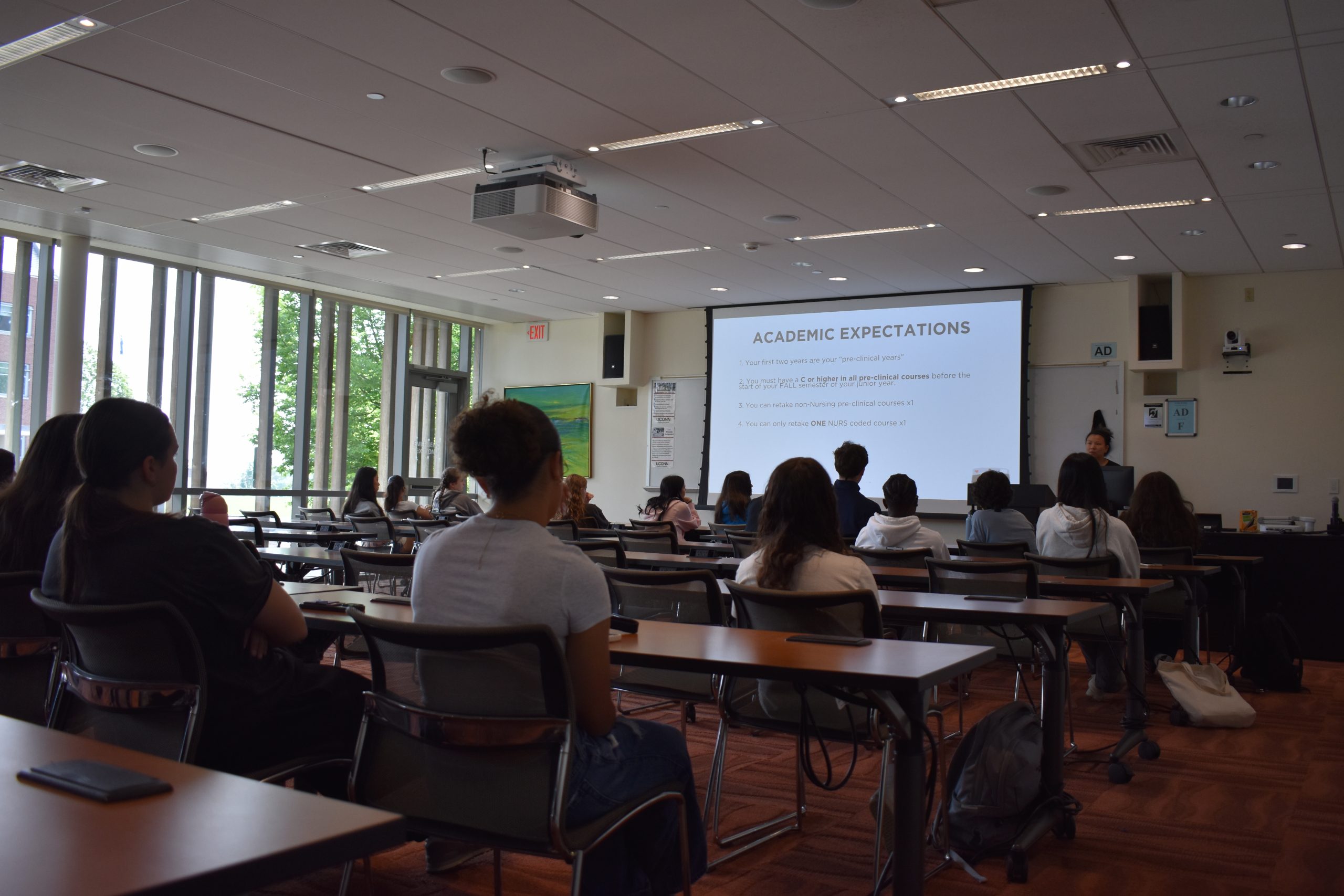The Board of Trustees on Thursday approved a 5.66 percent increase in tuition for the 2010-11 school year, rebuffing two efforts by student trustees to pass a larger tuition increase.
When room, board and mandatory fees are factored in, the total increase in costs for undergraduate students to attend UConn next year is 5.96 percent.
The increase, which passed in a 14-4 vote, came after more than an hour of testimony by faculty, staff and students, some pleading with Trustees not to increase tuition. Others – including the presidents of the Undergraduate Student Government (USG), the Graduate Student Senate (GSS), and the chair of the University Senate’s Executive Committee – urged the Trustees to pass at least a 6.3 percent tuition increase that was proposed by Chief Financial Officer Richard Gray earlier this month. Still others asked the Board to delay its vote so administrators could meet with students and find other ways to increase revenues.

Many of the speakers urged the Trustees to join them in lobbying Gov. M. Jodi Rell and state legislators for a larger state appropriation. Thomas Haggerty, president of the USG, said student leaders next week will begin an “aggressive campaign” to convince legislators in Hartford to increase the allocation.
Andrew Grubb, president of the GSS, which suggested a 7 percent increase, said he and his fellow graduate students understood that undergraduates pay the bulk of tuition. But, noting that undergraduates outnumber graduates 21,500 to 6,500, he said, “those numbers lie.”
“The numbers don’t show how valuable graduate students are,” Grubb said during his testimony. “We are where the burden will fall” when spiraling deficits force the University to trim faculty and staff. He said departments across campus are already holding the line on hiring teaching assistants.
“I have 400 fewer seats available in my freshman English classes now. I know others who are teaching three courses with 75 students in each. We’re going to lose a lot if we don’t increase revenues,” Grubb said, pointing to Gray’s projections that UConn could be looking at deficits of as much as $11 million in 2011-12 and $20 million in 2012-13.
“If this increase is too low it will cause lost classes, lost jobs, and longer times before students can graduate,” he said.
Jack Clausen, chair of the Senate Executive Committee, followed Grubb to the lectern, saying UConn has already “begun the slide toward mediocrity.
“From the fall of 2008 to the fall of 2009, the number of faculty has decreased from 1,096 to 1,036, a loss of 60,” Clausen said. “The number of in-residence faculty, temporary hires who are not expected to conduct research, has increased from 228 to 250, an increase of 22; the number of graduate teaching assistants has decreased from 1,469 to 1,247, a decline of 222; and the number of undergraduates has increased from 21,372 to 21,496, an increase of 124.”
With the increase, an in-state resident living on campus will pay $20,968 in the next academic year, an increase of $1,180. Out-of-state students living on campus will pay $37,432. Even with the increase, UConn remains competitive compared to similar institutions. The tuition and mandatory fees are the fifth lowest among other flagship universities in the region, well below charges at Pennsylvania State University, Rutgers, and the universities of New Hampshire, Vermont and Massachusetts.
After the speakers finished, Board Vice Chair Peter S. Drotch announced that the Board’s finance committee had lowered Gray’s initial recommendation for a 6.3 percent increase to 5.66 percent, saying trustees, like the students, had a range of views from no increase to a larger increase, “in view of what’s coming down the pike” in 2012.
Regardless of the size of the increase, however, Drotch said, all the board members “realize we have to restructure the University.” To that end, he added, a board subcommittee was in the process, with the University administration, of hiring an outside consultant “to assist us in assessing how we deliver our product. We not only have to reduce the growth of costs, but we must reduce our costs in absolute terms.”
Student Trustees Richard Colon Jr. and Corey M. Schmitt proposed an amendment asking the Trustees to approve a 7.5 percent tuition increase rather than the 5.66 percent that was before them for a vote. Colon said it was unconscionable for the board to pass an increase so low that there would be a built-in deficit in the next fiscal year, and he echoed Clausen saying such a low increase threatened to push UConn back toward becoming a safety school, unable to provide the education, housing, and amenities that have made the University one of the top public schools in the nation.
That amendment failed 13-5. Schmitt then offered another amendment, seeking a vote on a 6.3 percent increase, which also failed 13-5 before the board approved the 5.66 percent increase.


